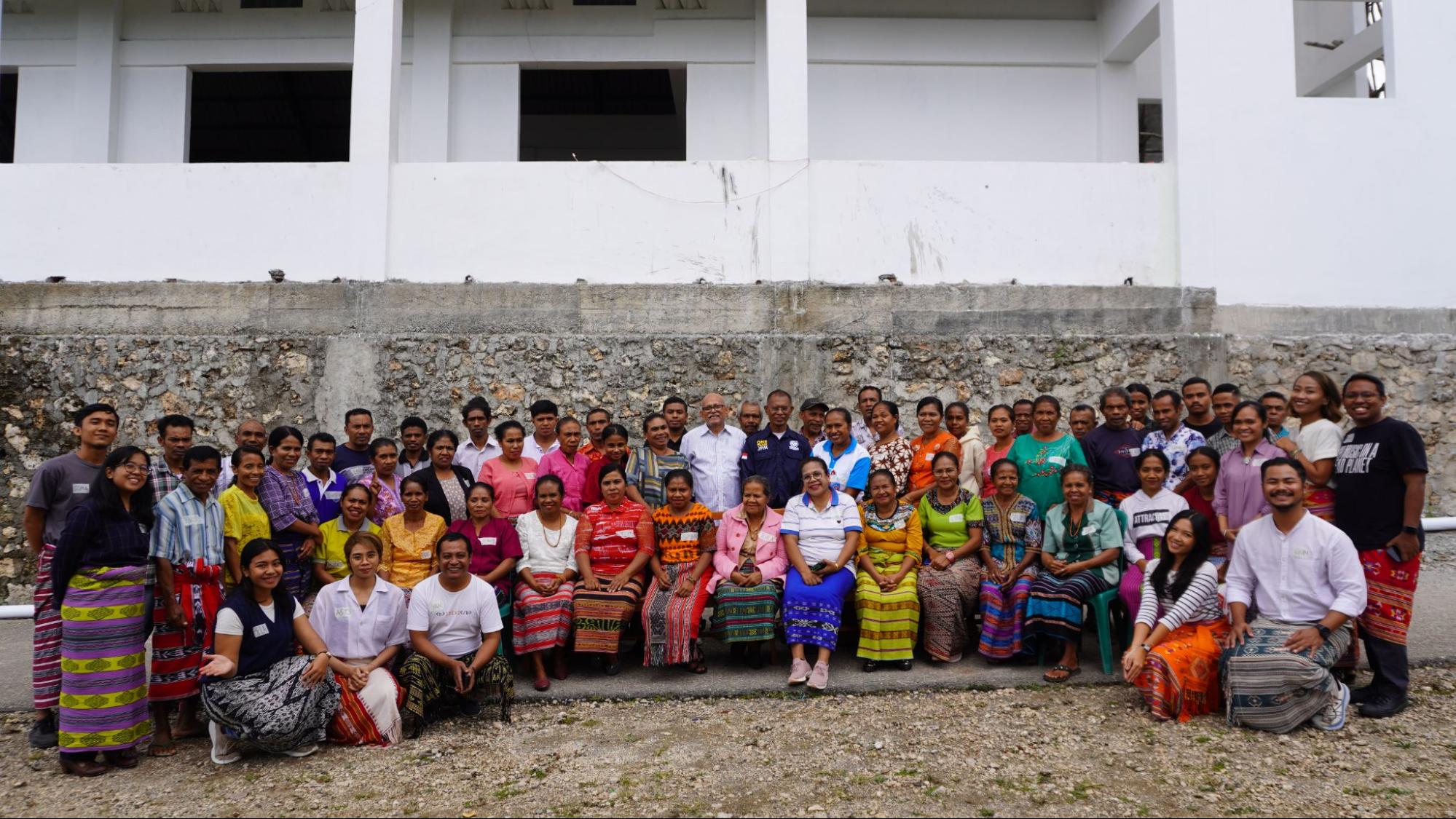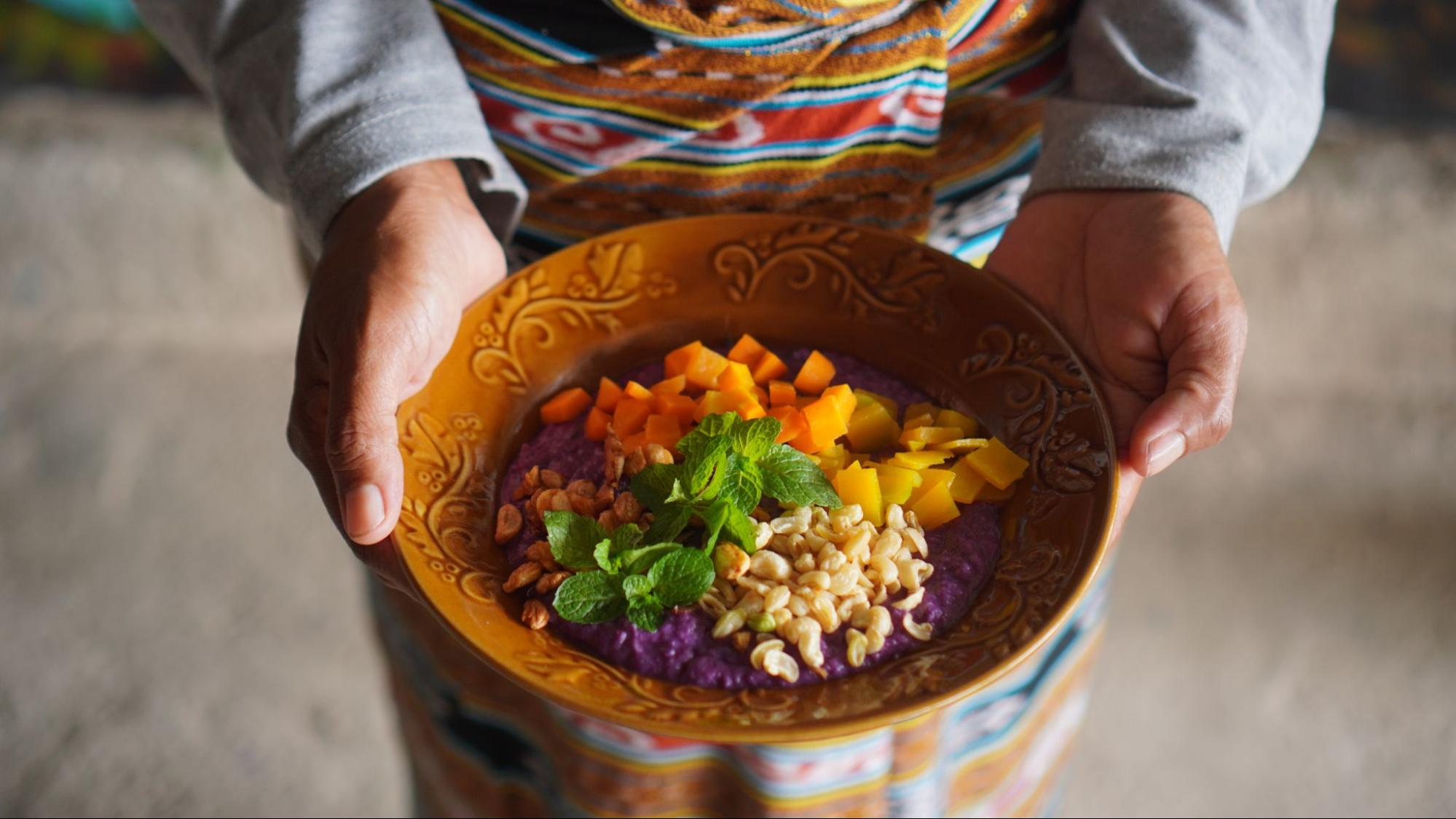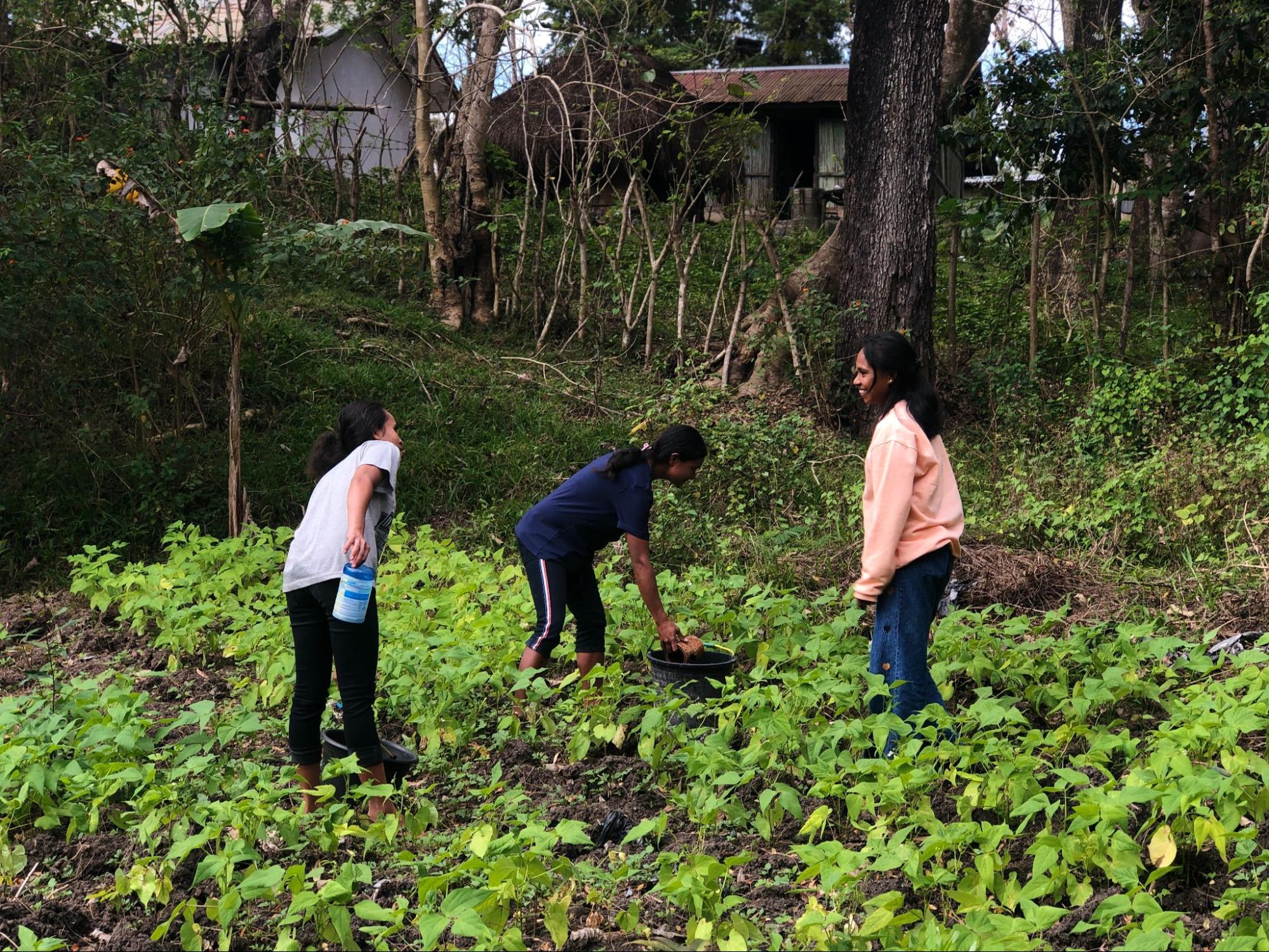
Farmers involved in the PANGAN initiative in Soe village, West Timor, alongside the Kopernik team.
Kopernik is excited to announce its partnership with the Institute of Food Technologists (IFT) through the PANGAN Initiative in West Timor, East Nusa Tenggara, Indonesia. This initiative was selected from among 2,400 startups and organizations worldwide for its direct approach to addressing the urgent need to combat stunting, with a particular focus on children during the first 1,000 days of life and their families' nutritional needs.
PANGAN uses a holistic approach to integrate food security and nutrition, focusing on local food and regenerative agricultural practices to improve diets and nutritional intake for families and children. Its community education program promotes the benefits of consuming local food through engaging activities such as food identification workshops, recipe development, and cooking demos. The program also introduces solar dryers to help preserve food post-harvest, enhancing the community’s resilience to climate-related challenges. Additionally, PANGAN introduces farmers to using black soldier flies to manage their organic waste and spoiled produce during harvest time, converting it into nutritional feed for livestock and compost for farming.

Purple Sweet Potato Porridge, featured in cooking demonstrations, highlights the use of local ingredients for tasty and nutritious meals.
“The beauty of this innovation is that it is an approach that can be scaled across the region well beyond Timor, with significant impact on people’s health and the environment,” said Bernhard van Lengerich, Founder & CEO of Seeding The Future Foundation.
As one of the winners of the Future Global Food System Challenge, the PANGAN initiative aligns closely with Indonesia's national food policy frameworks. It specifically targets reducing stunting and enhancing food security through localized, innovative food solutions. It combines targeted interventions providing nutritional support within the healthcare sector with broader efforts to enhance community knowledge on stunting prevention, promote exclusive breastfeeding, and increase the consumption of complementary food. Another key aspect of PANGAN’s approach is its emphasis on collaboration among various stakeholders to accelerate stunting reduction efforts nationwide.

The villagers of Noinbila, West Timor, in one of the community gardens that implements regenerative agricultural practices as part of the PANGAN program.
“Through this initiative, we are committed to creating sustainable solutions that improve the lives of children and families in Indonesia. By leveraging local resources and innovative practices, we can make a significant impact on food sovereignty and nutrition,” said Ewa Wojkowska, Co-Founder & COO of Kopernik. “Our goal goes beyond addressing immediate needs, we aim to empower communities to sustain these improvements for generations to come,” she added.
By integrating localized food approaches and revitalizing indigenous agricultural systems, PANGAN seeks to produce highly nutritious and diverse local food, contributing to the national goal of reducing stunting prevalence and achieving food self-sufficiency, thus supporting the broader aim of national food resilience.
Stay tuned for more updates on this initiative through our newsletter and social media channels.


